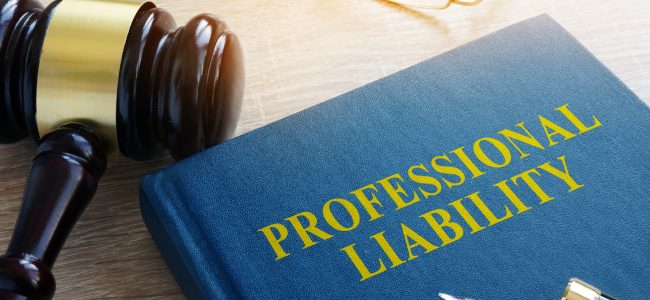BlogLine
Third Time’s a Charm: California Enacts Model Rule of Professional Conduct Rule 8.3 Snitch Rule
7/17/23

By: William A. Muñoz
After two failed attempts in 2010 and 2016 to enact a version of Model Rule of Professional Conduct, Rule 8.3, otherwise known as the “Snitch Rule,” the California Supreme Court has approved a version of Rule 8.3 effective August 1, 2023. In light of the situation involving disgraced attorney Thomas Girardi, the State Bar of California tasked the Committee on Professional Responsibility and Conduct (“COPRAC”) with drafting a California version of Rule 8.3.1 The process was expedited because SB42 was pending before the California Legislature by Senator Tom Umberg that sought to enact a statute that imposed an obligation on attorneys that is far more expansive than any other version of Rule 8.3 in the country. The hope was if the State Bar enacted a version of Rule 8.3, the bill proposed by Senator Umberg would die in the Senate.
The impetus behind the new Rule was the Thomas Girardi situation and lack of effective prosecution of numerous disciplinary complaints against Mr. Girardi over the years suggesting that other attorneys including those in Mr. Girardi’s firm were aware of the wrongful conduct but were not obligated to report the conduct on the existing Rules of Professional Conduct. The May 2, 2023 hearing of the California Senate Judiciary Committee, chaired by Senator Umberg stated:
Many attorneys noticed Girardi’s egregious ethical violations, including those in his own law firm. However, these attorneys had no duty to report his misconduct. The lack of a mandatory reporting statute resulted in a substantial delay in justice to the victims. Thankfully, in 2022, a court ordered Girardi to pay $2,300,000 in restitution and he finally was disbarred.
A 2023 California State Bar report of the Thomas Girardi situation unfortunately revealed multiple complaints that were either not investigated or simply dismissed for lack of evidence.
In light of the pending legislation by Senator Umberg, the State Bar Board of Trustees tasked COPRAC with the task of drafting a version of Rule 8.3 to bring California up to date with all other jurisdictions in the country that have adopted a version of the American Bar Association’s Model Rule of Professional Conduct 8.3. COPRAC prepared two drafts of Rule 8.3 that were circulated for public comment. Those public comments were, for the most part, split in terms of whether such a rule should be adopted with about half indicating a version of the rule should be adopted with modifications and the other half opposed to the rule.
Those opposed to the Rule uniformly were concerned that: (1) enacting the rule will be abused as a litigation tactic against opposing counsel; and (2) the rule effectively forces California attorneys to undertake the task specifically imposed upon the State Bar’s Office of Trial Counsel in investigating attorney complaints and compliance with the Rules of Professional Conduct. Both positions have merit.
Currently, opposing counsel often use a motion to disqualify counsel as a tactic to remove counsel from the opposing party’s choice of counsel. (See, e.g., Gregori v. Bank of America (1989) 207 Cal.App.3d 291, 300-301.) With new Rule 8.3, there is another tool in opposing counsel’s arsenal to disrupt the attorney-client relationship with the attorney’s client. Suggesting that counsel has violated the Rules of Professional Conduct may create a conflict of interest between the attorney and client that may not be waivable and force the client to retain new counsel. For instance, an attorney could file a complaint with the State Bar claiming that opposing counsel has been dishonest in the course of litigation, which would certainly go to the attorney’s fitness as an attorney, just because the filing attorney does not like the way the other attorney is prosecuting or defending a certain action. The reporting attorney is protected from making the complaint, but the impact on the attorney-client relationship may be irreparably damaged. (See Rule 8.3, cmt. 10; Bus. & Prof. Code § 6094; but see Bus. & Prof. Code § 6043.5, 6068(d).) While the complaining attorney could be subject to discipline for threating administrative action to gain an advantage in litigation, the attorney against whom a complaint is made must still defend himself or herself against the complaint disrupting the attorney-client relationship. (See Cal. Rule Prof. Cond., rule 3.10(a).)
Regarding the second position of those opposed to the Rule, California attorneys should not be in the position of reporting other attorneys, otherwise, there would be no need for the Office of Trial Counsel (“Office of Trial Counsel”). The function of the OTC is to investigate and prosecute complaints against attorneys. Those opposed to the new rule suggest that the OTC has wholly failed to fulfill this role as it related to Thomas Girardi and thus, a duty should not be imposed upon California attorneys to do OTC’s job.
While both positions set forth by the opposition, as well as the proponents, have merit, COPRAC took these public comments into consideration to narrowly tailor the new rule, representing a fair compromise between the competing factions of the rule. Sadly, there are some bad attorneys out there throughout the country, including California, and, of course, attorney misconduct should not go unpunished. California’s new Rule 8.3 presents a compromise to minimize abuse as a litigation tactic and not put the onus on California attorneys to act as private attorney generals for the State Bar’s Office of Trial Counsel.
With the new Rule going into effect on August 1, 2023, it remains to be seen whether the concerns about the rule come to fruition.
1 The author is a member of COPRAC and was on the subcommittee tasked with drafting California’s version of Rule 8.3. The opinions expressed herein are solely the opinions of the author and not the opinions of COPRAC or the State Bar of California.
For more information, please contact William A. Muñoz at bill.munoz@fmglaw.com or your local FMG attorney.
Share
Save Print
